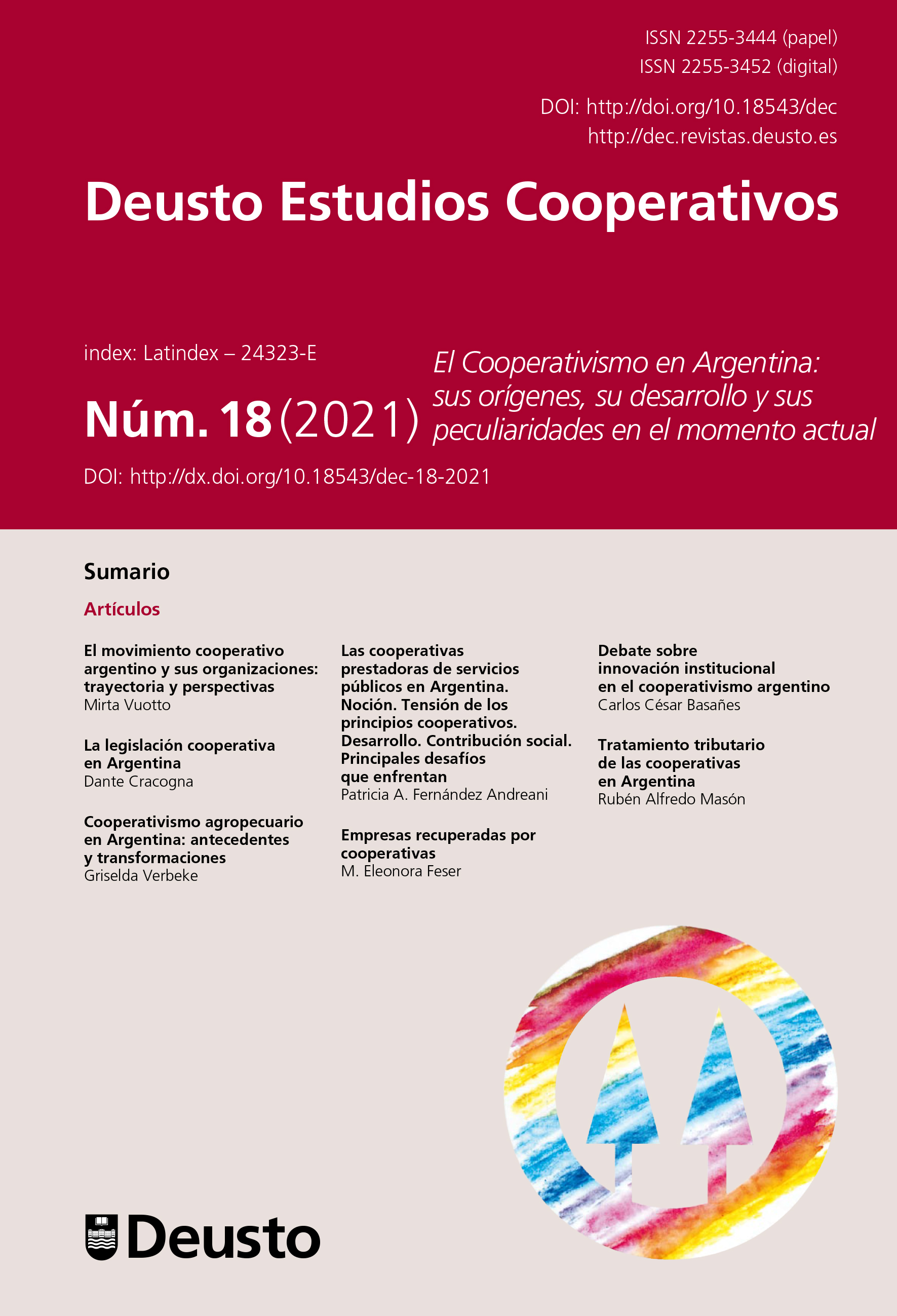La legislación cooperativa en Argentina
Abstract
This article describes in a synthetic way the legal treatment of cooperatives in Argentine starting from the Code of Commerce enacted in 1889 to the present law on cooperatives. It provides a vision of the main features of the cooperatives following the structure of Law 20.337 which is the general law of cooperatives in the country. It emphasizes the aspects that make the difference between cooperatives and for-profit societies. The impact of the new Civil and Commercial Code of 2015 on the legal framework for cooperatives is considered as well as the subsidiary incidence of the regulations of the General Law of Societies. Special attention is paid to the notion of cooperative act, the economic regimen, the governance structure of cooperatives and the regulation of cooperation among cooperatives.
Received: 22 June 2021
Accepted: 06 September 2021
Downloads
The authors, by submitting their manuscripts to the Deusto Estudios Cooperativos (DEC), accept the conditions listed below on copyright and undertake to comply with them. They do not sign any document of assignment of rights to the Publisher.
1. Authorship: The author must be the sole creator of the work or legally acting on behalf of and with the full agreement of all the authors.
2. Copyright and Code of conduct:
a) Authors warrant that their work is original; has not been previously copyrighted or published in any form; is not under consideration for publication elsewhere; its submission and publication do not violate the Ethical Guidelines of DEC and any codes (of conduct), laws or any rights of any third party; and no publication payment by the Publisher (University of Deusto) is required.
b) Authors grant to the Publisher the worldwide, sub-licensable, and royalty-free right to exploit the work in all forms and media of expression, now known or developed in the future, for educational and scholarly purposes.
c) Authors retain the right to present, display, distribute, develop, and republish their work to progress their scientific career provided the original publication source (DEC) is properly acknowledged.
d) Authors warrant that no permissions or licences of any kind have been granted or will be granted that might infringe the rights granted to the Publisher.


3.jpg)
3.jpg)






